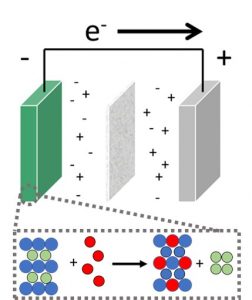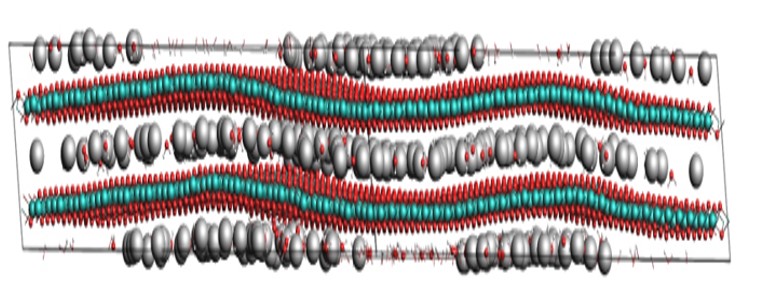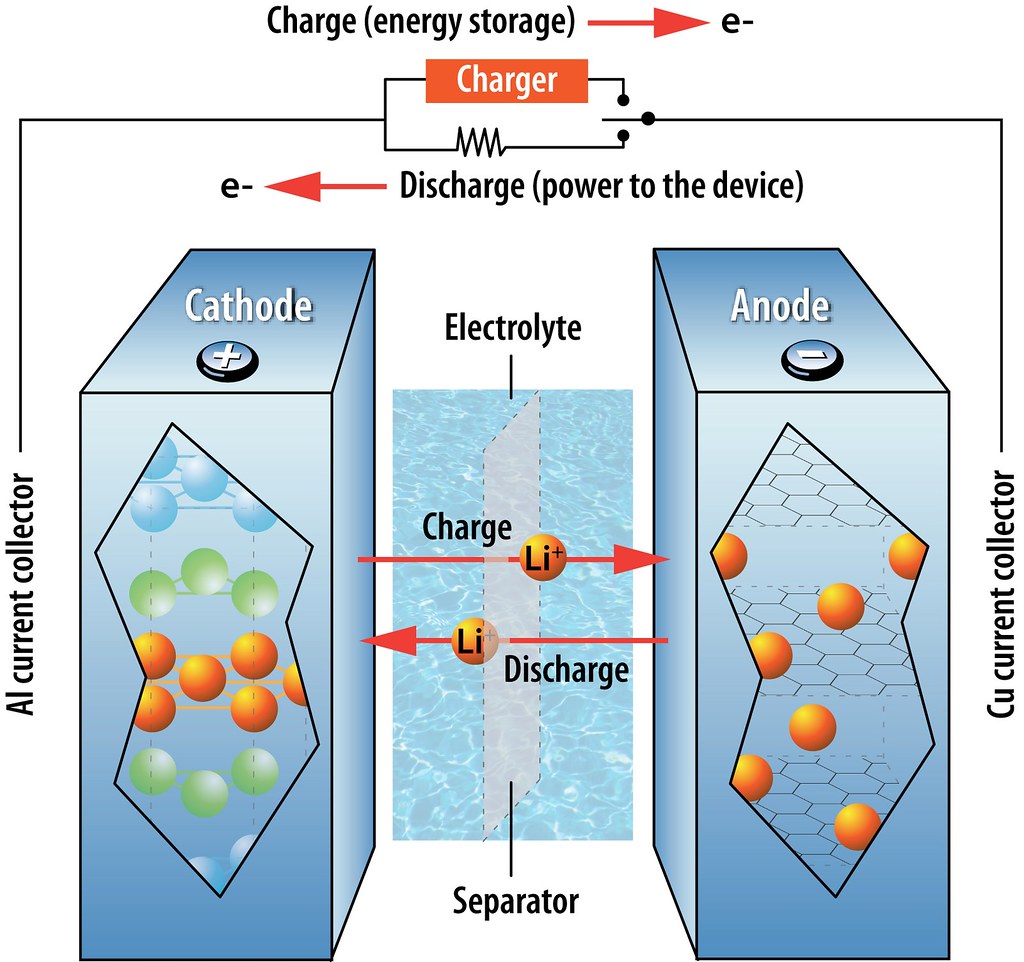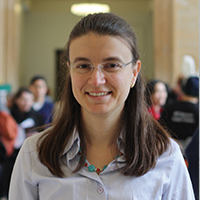 Electrochemistry is the magic that binds together the many fields that excite Professor Bilge Yildiz, ECS Awarded Life Member and recipient of the 2012 ECS Charles W. Tobias Young Investigator Award—and invited speaker in the 241st ECS Meeting Symposium I05: Mechano-Electro-Chemical Coupling in Energy Related Materials and Devices 4. Prof. Yildiz was named a 2021 Fellow of the American Physical Society for “innovative contributions to understanding and manipulating ionic defects and charge transport at electro-chemo-mechanically coupled oxide interfaces and devices.” (more…)
Electrochemistry is the magic that binds together the many fields that excite Professor Bilge Yildiz, ECS Awarded Life Member and recipient of the 2012 ECS Charles W. Tobias Young Investigator Award—and invited speaker in the 241st ECS Meeting Symposium I05: Mechano-Electro-Chemical Coupling in Energy Related Materials and Devices 4. Prof. Yildiz was named a 2021 Fellow of the American Physical Society for “innovative contributions to understanding and manipulating ionic defects and charge transport at electro-chemo-mechanically coupled oxide interfaces and devices.” (more…)
From order to disorder: NMR insights into ionic conduction in battery materials – Webinar Q&A with Prof. Raphaële J. Clément
Posted on November 15, 2021 by Kellie Gilbert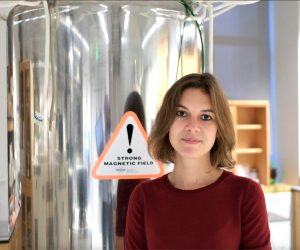 The Electrochemical Society hosted Prof. Raphaële J. Clément’s live online webinar, “From order to disorder: NMR insights into ionic conduction in battery materials,” on October 27, 2021. Below are answers to questions posed during the presentation.
The Electrochemical Society hosted Prof. Raphaële J. Clément’s live online webinar, “From order to disorder: NMR insights into ionic conduction in battery materials,” on October 27, 2021. Below are answers to questions posed during the presentation.
Raphaële Clément is an Assistant Professor in the Materials Department at the University of California, Santa Barbara (UCSB), U.S. She received her PhD in Chemistry in 2016 from the University of Cambridge, UK, working under the supervision of Prof. Clare Grey. Her doctoral work focused on the study of layered sodium transition metal oxide cathodes for Na-ion secondary batteries. She then joined Prof. Gerbrand Ceder’s group at the University of California, Berkeley (UC Berkeley), U.S., focusing on cation-disordered rock salt oxyfluorides for Li-ion battery applications. She joined the UCSB faculty in 2018. Her primary research focus is the development and implementation of magnetic resonance techniques (experimental and computational) for the study of battery materials and beyond, with a strong emphasis on operando tools. She is an Associate Editor for Battery Energy, a new open access journal by Wiley. (more…)
DOE Announces $209 Million for Electric Vehicle Battery Research
Posted on November 10, 2021 by Frances Chaves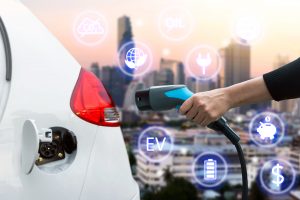 The U.S. Department of Energy (DOE) recently announced $209 million in funding for 26 new laboratory projects focusing on electric vehicles, advanced batteries, and connected vehicles. DOE’s Argonne National Laboratory introduced Li-Bridge, a new public-private partnership to bridge gaps in the domestic lithium battery supply chain. Advanced lithium-based batteries play an integral role in 21st century technologies such as electric vehicles, stationary grid storage, and defense applications that are critical to securing a clean energy future. The projects support goals to make the United States a global leader in electric vehicle and battery innovation; advance the development of these technologies to save families money; lower carbon pollution; and create high-quality jobs. (more…)
The U.S. Department of Energy (DOE) recently announced $209 million in funding for 26 new laboratory projects focusing on electric vehicles, advanced batteries, and connected vehicles. DOE’s Argonne National Laboratory introduced Li-Bridge, a new public-private partnership to bridge gaps in the domestic lithium battery supply chain. Advanced lithium-based batteries play an integral role in 21st century technologies such as electric vehicles, stationary grid storage, and defense applications that are critical to securing a clean energy future. The projects support goals to make the United States a global leader in electric vehicle and battery innovation; advance the development of these technologies to save families money; lower carbon pollution; and create high-quality jobs. (more…)
ECS New England Section 10/26 Zoom Meeting with Steve Visco Presentation
Posted on October 22, 2021 by Kellie Gilbert The Development of Ultra-Thin Highly Conductive Glass Separators for Next Generation Solid-State Batteries
The Development of Ultra-Thin Highly Conductive Glass Separators for Next Generation Solid-State Batteries
The ECS New England Section presents a free webinar on October 26, 2021, with Dr. Steve Visco (CEO & CTO, PolyPlus Battery Company) during the section’s regular Zoom meeting. The talk is co-hosted with the Northeastern University Center for Renewable Energy (NUCRET).
Speaker: Steve Visco
PolyPlus Battery Company
Date: October 26, 2021
Schedule
1830h ET Check in, Social
1835-1915h ET Talk by Dr. Steve Visco
1915h ET Q&A, Discussion
1930h ET Adjourn
Price: Free
Email NUCRET@neu.edu to confirm your attendance.
Provide your name, affiliation, job title, email address, telephone number, and ECS membership status (member/non-member/student member).
Access
(more…)
ECS Webinar: Electrochem-Based and -Coupled Characterization of Energy Storage Materials
Posted on August 11, 2021 by Kellie GilbertAmy C. Marschilok, Ph.D.
Co-Director, Institute for Electrochemically Stored Energy
Associate Professor, Department of Chemistry
Adjunct Faculty, Materials Science and Chemical Engineering
Stony Brook University, U.S.
Energy Storage Division Manager and Scientist, Interdisciplinary Science Department
Brookhaven National Laboratory, U.S.
Date: August 25, 2021
Time: 1300h EDT
Sponsor: Hiden Analytical
ECS Webinar: Water-mediated Intercalation Mechanisms in Transition Metal Oxides
Posted on August 4, 2021 by Kellie GilbertVeronica Augustyn
Associate Professor of Materials Science & Engineering
University Faculty Scholar
North Carolina State University, U.S.
Date: August 18, 2021
Time: 1000h EDT
Sponsor: Hiden Analytical
ECS Webinar: Thermodynamic origins of reaction heterogeneity in lithium battery electrodes
Posted on July 14, 2021 by Kellie GilbertMing Tang
Associate Professor
Department of Materials Science and NanoEngineering
Rice University, U.S.
Date: July 28, 2021
Time: 1000h ET
Sponsor: Hiden Analytical
During battery (dis)charging, lithium (de)intercalation in electrodes is usually spatially non-uniform across multiple length scales. Such a phenomenon is a major impediment to battery performance and life as it causes energy under-utilization and induces over-(dis)charging, etc. While reaction heterogeneity is often attributed to mass transport limitation, this talk highlights the important roles of thermodynamic factors including elastic energy and phase transformations, the understanding of which is important for the development of mitigation strategies. Through combined modeling and characterization, how stress could destabilize the lithium (de)lithiation front in single crystalline and polycrystalline intercalation compounds is elucidated. Also, a fundamental driving force for dendrite growth on the lithium metal anode during electrodeposition is provided. Stress relief thus offers a promising approach to improving reaction uniformity at the particle level. At the cell level, the reaction distribution that within the porous electrode is strongly influenced by how the electrode’s equilibrium potential varies with the state of charge, is discovered. Two types of prototypical reaction behavior emerge from common electrode materials with significant impact on the thick electrode performance. This finding leads to an efficient analytical model for optimizing battery configurations in place of common battery cell simulations. (more…)
ECS Webinar: Application of Electrochemical Impedance Spectroscopy in Lithium Ion Batteries
Posted on June 30, 2021 by Frances ChavesChockkalingam (Chock) Karuppaiah
Founder and Chairman, Vetri Labs, U.S.
Chief Technology Officer, Ohmium, U.S.
Date: July 14, 2021
Time: 1300h ET
Sponsor: Gamry Instruments & Hiden Analytical
Be it improving energy density or cycle life or reducing cost, understanding the failure modes of batteries in a non-destructive mode is critical during the design, product development, and manufacturing of lithium ion batteries. Electrochemical impedance spectroscopy (EIS) provides the ability to access and decouple the failure modes based on the processes’ time scale. Analysis of recorded EIS can be done either through phenomenological modelling or equivalent circuit modelling, with each having its own pros and cons.
This webinar reviews the basics of applying EIS for understanding the phenomena in lithium ion batteries, the experimental details and protocols, and the types of models with a few case studies. (more…)
ECS San Francisco Section’s Distinguished Speaker Series with Marca Doeff presenting: What Comes Next After Lithium-Ion Batteries?
Posted on May 7, 2021 by Frances Chaves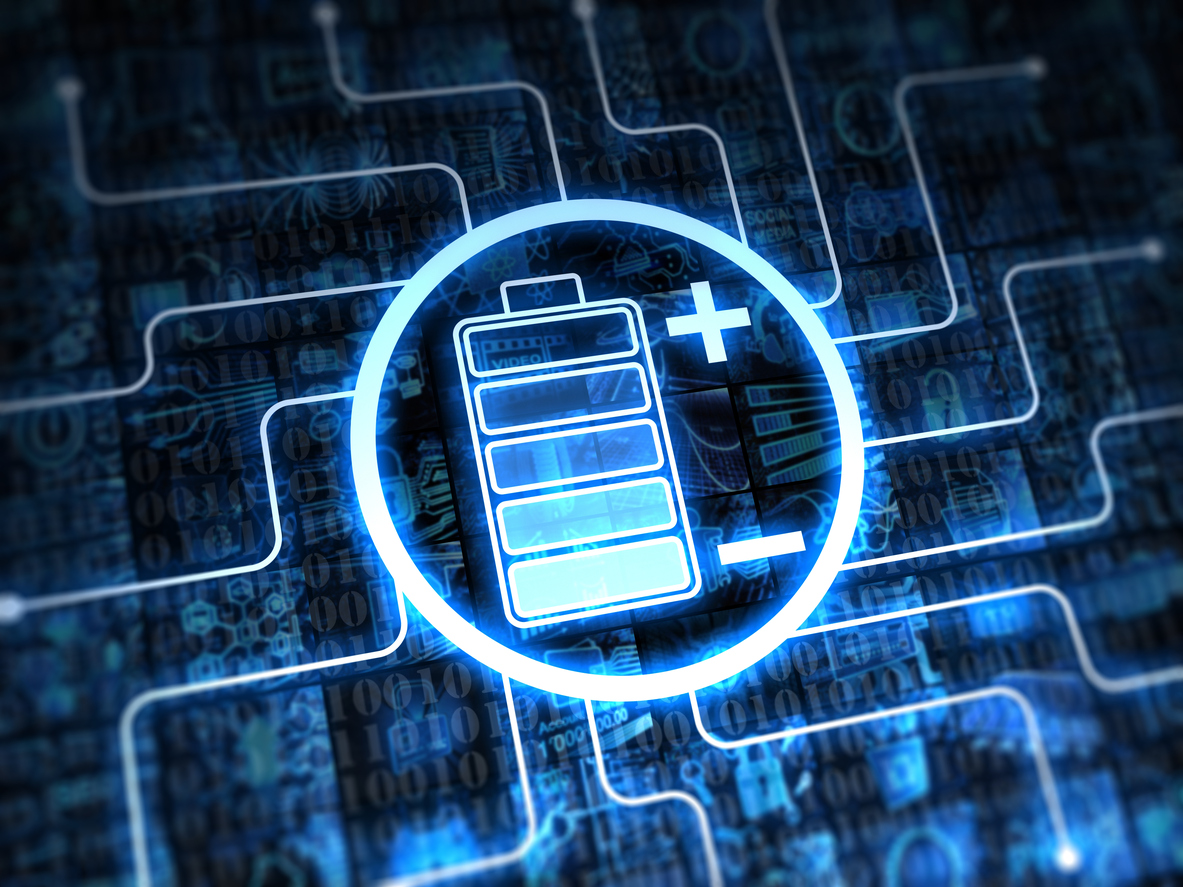
Register for the May 20 event!
Marca Doeff
Senior Scientist
Division Deputy Director of the Energy Storage and Distributed Resources Division
Member, Energy Storage Group
Lawrence Berkeley National Laboratory
Date
Thursday, May 20, 2021 (more…)
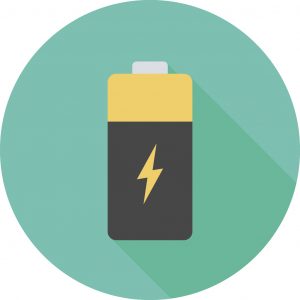 The ECS Detroit Section presents a free webinar on April 8 with Tobias Glossmann, Principal Systems Engineer at Mercedes-Benz Research and Development North America, on “Batteries for the Future.” Glossmann’s presentation takes place during the section’s April meeting. No reservation is required to participate.
The ECS Detroit Section presents a free webinar on April 8 with Tobias Glossmann, Principal Systems Engineer at Mercedes-Benz Research and Development North America, on “Batteries for the Future.” Glossmann’s presentation takes place during the section’s April meeting. No reservation is required to participate.
Tobias Glossmann
Mercedes-Benz Research and Development North America
Date: April 8, 2021
Schedule
1900-1915h EDT General Chapter Announcements and Introductions
1915-2015h EDT Presentation
2015-2030h EDT Closing Remarks
Price: Free
Access
Join Zoom Meeting
Meeting ID: 946 1192 4270
Passcode: 543624


